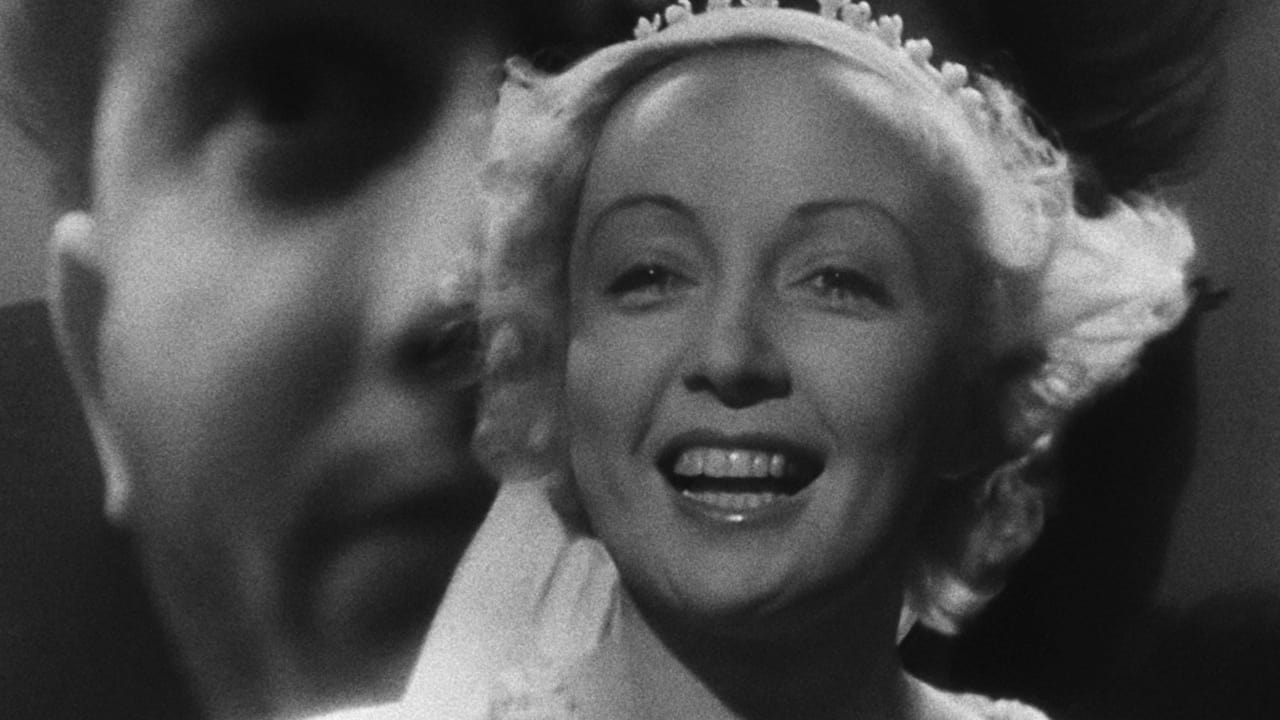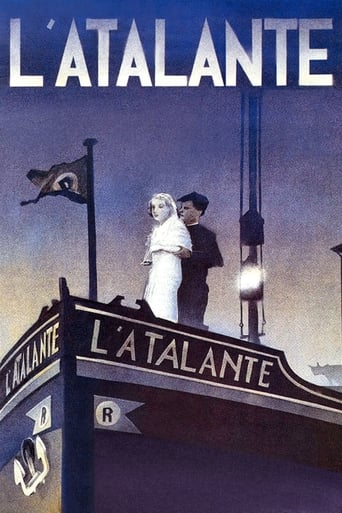

L'Atalante (1934) (French: Le Chaland Qui Passe {The Passing Barge}) Director: Jean Vigo Watched: March 2018 Rating: 7/10 {Clue: This film proves that more is not always better; sometimes, this is best.} Silent film spirit with limited dialogue- instead spotlighting poetic images and enchanting scenes, Interesting supporting characters with colorful personalities, like the one-man band street peddler that tries to woo Juliette, Magical realism elements like the folk tale that says one can see the face of their true lover in the water and that celestial underwater love scene, Père Jules is the glue that holds this little barge party together- with his wiseness disguised by comical antics, Lacks character and emotional depth; more a playful work of art than a film masterpiece, Easily makes the list of magical, timeless love stories- though overrated by critics and top ten lists. Acrostic is a form of poetry where the first letters in each line, paragraph, or word are doubly used to spell a name, phrase, or word. The word "acrostic" comes from the Greek words "akros" (outermost) and "stichos" (line of verse). Read the appropriate letters in the poem vertically to reveal the extra message, called the "acrostich"! #Acrostic #PoemReview #Classics
... View More"L'Atalante" is about two newlyweds that start their marriage on the husband's (Jean) boat. Juliette has never left her hometown, and she desperately wants to go to Paris, envisioning it as a paradise and utopia for her. Basically, she's a romantic. She even says that if you open your eyes underwater, you can see your beloved one, and that is where she first saw him. However, when she gets on the boat, Jean begins to kiss her, but Juliette pushes him away and starts walking back toward her family and friends and the town she is so familiar with. But as we see, her walking back is still going nowhere. She's already left. But then she turns around to see her husband running after her, with cats attacking him, and she realizes he is right there with her, and he is what she must focus on now.We find out that Jean gets jealous easily and is a bit overprotective in a scene involving a worker on the ship named le peré Jules. Jules is simply showing Juliette some items from his travels, but he is a bit sloppy and crude. Suddenly, Jean comes in and has a fit. He throws plates on the floor and overreacts. Then when they finally get to Paris, they can't go because of Jules. They do however stop in a nearby city, and Jean tries to make up for it by going there. But the trip goes awry when a street peddler begins to follow Juliette and she almost falls for his scams to make them buy something, since she is a romantic. Jean really loses it when he sees her dancing with him, and then once he says Juliette can no longer go out to the city, he tries to sneak her out. He finally leaves her alone, but she can't stop thinking about her potential night in the city, and decides to sneak out. Her romantic illusions are crushed after the first few hours of shopping and sight seeing however, when she sees the rudeness of the city dwellers and is mugged. The men take off, but Jean doesn't recover, and he realizes he cannot function without her. Juliette realizes the same and in one scene the shots of Juliette and Jean sleeping apart fade into each other to show that they are both thinking of each other. When Jules fixes the gramophone and Jean first hears that music, Jean jumps into the water in a desperate attempt to get a glimpse of his wife and finally sees her in the water, showing that to a certain extent, Juliettes romanticism was true. Then Jules realizes they need to find Juliette after their boss almost fires Jean. And of all places he finds her listening to that song they once sang her on the boat earlier in the film.While Jean was right in some ways in his protectiveness, and Juliette in her romanticism, they both had too much of it, and ultimately let those distract them from what really mattered, which was each other.
... View MoreThis movie was classified in a recent critics' poll as one of the best 100 films ever made. Though I don't put it on there in fact I liked it enough to classify it as a good one. Immediately after their wedding in church a young couple goes running to live in a barge where the husband is a skipper and navigates on river Seine. The action takes place within the barge most of the time which begins to annoy the wife. There besides they, only live and work a boy and and eccentric mate, Père Jules with his bunch of cats, acted by the great Michel Simon whose performance only by itself could make the film worth to be seen. Tensions between husband and wife begin to arise and turn out soon a bit dramatic as expected. Everything is told in lively images and some unexpected and surprising scenes. A firmly directed movie and well acted.
... View MoreThere are three main reasons that made me watch this: because it's old, foreign (french, in this case) and because I love ships.Honestly I thought I'd like this movie much better. It just couldn't captivate me. I think that this movie's reputation as one of the all-time greats doesn't justify. Its plot is simple but not especially involving, or maybe it just wasn't properly worked. Basically it's all about a married couple on their honeymoon (or is it bittermoon?) in a boat trip (a boat used to have only men aboard) and very little happens - that is, other than constant conflicts aboard. The majority of characters are not likable, except the cats and the young woman.I didn't like it very much, but François Truffaut did, as did other filmmakers of the French New Wave. They probably took a lesson or two from this to create their own films.A shame that director Jean Vigo died so young (he was 29). Had he lived a longer life and maybe he could have become a big name in the french cinema.
... View More